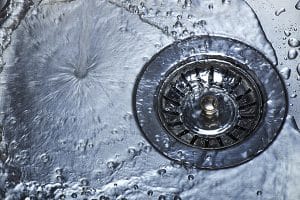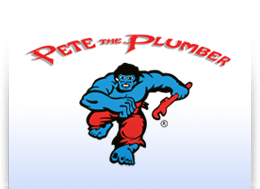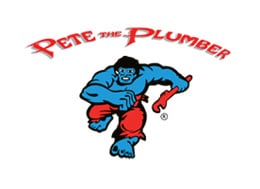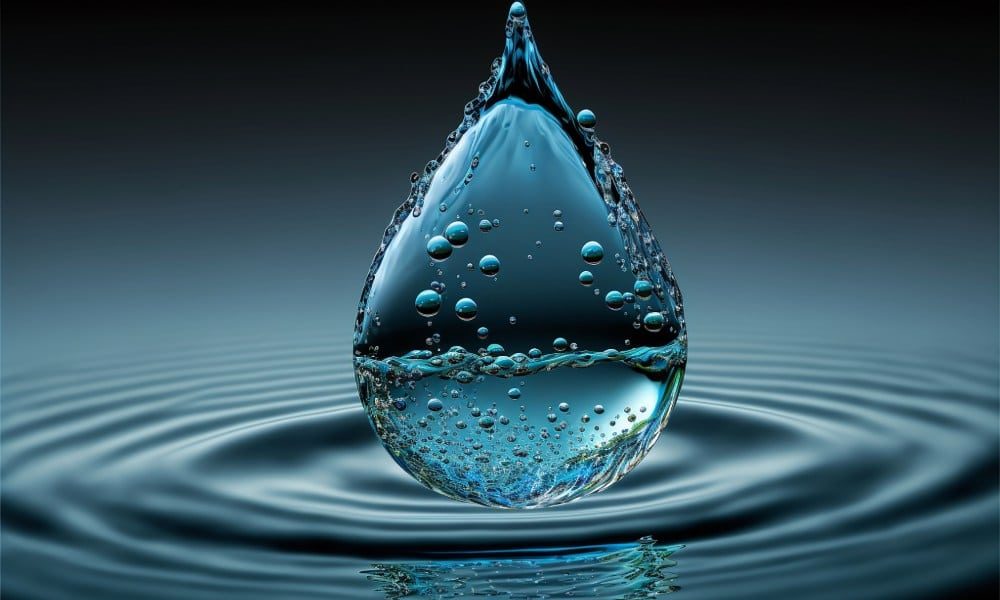What is hard water?
Many plumbing problems in Calgary homes are caused by hard water buildup.
The mineral-rich water we have in these parts can also cause other problems for homeowners – especially with washing clothes and sensitive skin.
Many homes already have water softeners installed to help prevent such problems – but how do you know if your home needs one?
If so, what type of water softener is best?
Fortunately, most water softening systems are simple and affordable to install, using the latest technology to solve an age-old problem.
- What is hard water?
- What causes hard water buildup?
- Why is a water softener important in Calgary?
- How do I know if I have hard water?
- Does a water softener affect drinking water?
- Can you install a water softener with a septic system?
- Six signs you need a water softener
- Need To Install a Water Softener?
What causes hard water buildup?
Most Calgary residents are familiar with the white crystalline buildup in the shower head and the kettle over time.
This is hard water buildup (sometimes called “limescale”) and it’s a natural consequence of the water here in Calgary.
Hard water is water with high mineral content. Most homes in Calgary receive their water from the Bow and Elbow Rivers to the west of the city.
This water is high in calcium and magnesium content, the water percolating through the limestone rocks before being treated and reaching our homes. So, hard water has always been part of life for Calgary residents.
Why is a water softener important in Calgary?
The City of Calgary uses a water hardness scale as follows:
Soft water contains less than 75mg per litre of calcium carbonate
Medium-hard water contains 75-150mg per litre
Hard water contains 150-300mg per litre
Very hard water contains 300mg or more per litre

This mineral content builds up in taps, boilers, showers, dishwashers, washing machines, kettles, and other water-based appliances around the home.
Some homeowners wait until the hard water has ruined a few appliances to do anything about it. Installing a softener will break down the mineral deposits and prevent your water from doing any damage in the future.
High calcium and magnesium content in the water is not associated with any known adverse health effects but it can create other problems around the home: for instance, it can cause clothing to lose colour after washing and increase energy bills due to harder-working appliances.
A good example is water heaters. They generally operate better with soft water as hard water can force water to run at higher temperatures. That means higher energy bills.
In summary, a water softener can help with the following:
- Enhance the efficiency of household appliances
Protect your plumbing network from avoidable problems
Save on soap/detergent
Reduce the damage to your favourite clothing when washing
Leave your skin and hair feeling softer
How do I know if I have hard water?
If you live in Calgary, assume that you have hard water in your home unless you have a softener installed.
Hard water refers to water that contains high levels of dissolved minerals, mainly calcium and magnesium. As water travels through rocks, limestone, and soil, it absorbs these minerals. The longer the water stays in contact with these materials before reaching your home, the more minerals it picks up. This makes water in some areas, like Calgary, harder than in others.
While hard water is not harmful to your health, it can cause significant issues for your household. The minerals in hard water can leave stubborn deposits on faucets, dishes, and appliances, affecting their performance and longevity. Over time, these mineral buildups can lead to clogged pipes and damage to household items like water heaters, dishwashers, and coffee makers.
There is a simple at-home test you can perform to identify hard water:
Fill a clear, clean, empty bottle one-third full of tap water
Add a few drops of pure liquid soap
Make sure that the cap is tightly screwed on and shake it vigorously for a few seconds.
If there are few bubbles and the water appears cloudy, your water is hard
If there are many bubbles and the water below the bubbles is clear, the water is soft
More advanced tests may involve water test strips and a colour chart to help you identify the precise hardness of the water but for most Calgary homeowners it won’t be necessary.
The Solution: Water Softening
The best solution to hard water issues is installing a water softener. Water softening works by removing the hardness-causing minerals—calcium and magnesium—through a process called ion exchange. In this process, water flows through a tank filled with resin beads, which are charged with sodium or potassium ions. When the hard water passes through the beads, the calcium and magnesium are exchanged for sodium or potassium, leaving you with soft water that’s better for your home and appliances.
If you’re facing hard water challenges in Calgary, a professional water treatment solution can help alleviate these issues and improve the quality of your household water.
Which type of water softener do you need?
Water softeners use salts to break down the calcified deposits in pipes and appliances in your home and attack the problem before it even starts.
Sometimes called “descalers”, water softeners are either packaged or mechanical systems.
With packaged water softeners, softening materials called resins (baking soda or borax) are added to accessible areas or appliances to remove the calcium and magnesium buildup. You simply add them as required.
Mechanical water softeners are separate units installed in your home. They vary in cost but are mainly affordable and durable systems that work using ion-exchange, whereby the calcium and magnesium ions are replaced with sodium ions.
Some systems can “partition” the water supply in your home, creating soft water in some parts of the home while allowing the water to remain hard in others.
Does a water softener affect drinking water?
The tap water in Calgary is safe to drink, as it is treated by the City.
Installing a water softener may add sodium content to the drinking water supply but this is generally a tiny amount that will not cause any negative impact on your health. The sodium content of many foods and beverages is far higher.
Those on a low-sodium diet may prefer to avoid softened water but, for everyone else, the water is perfectly safe to drink.
Can you install a water softener with a septic system?
A properly installed, high-quality water softener will not adversely affect the performance of the septic system in your home.
A small amount of sodium-rich wastewater may be discharged into your septic tank by the water softening system but this is not disruptive to the performance of either system.
The key is to choose a high-quality system and get it professionally installed.
Six signs you need a water softener
Let’s finish up by summarizing the signs that you need a water softener in your home:
- Scale buildup in your appliances
- Frequent plumbing problems
- Climbing energy (and water) bills – for no apparent reason
- Dryness of the skin and hair
- Stains on sinks and bathtubs
- Faded clothing after washing
Installing a water softener should solve these problems. It should extend the life of your appliances and plumbing pipes, as well as your favourite clothing. It may even reduce energy bills as fixtures work more efficiently when limescale is removed.
There is a small initial investment but it will save you in the long run.
Need To Install a Water Softener?
Call Pete the Plumber at (403) 257-1766 if you have any questions about installing a water softener in your Calgary home.


